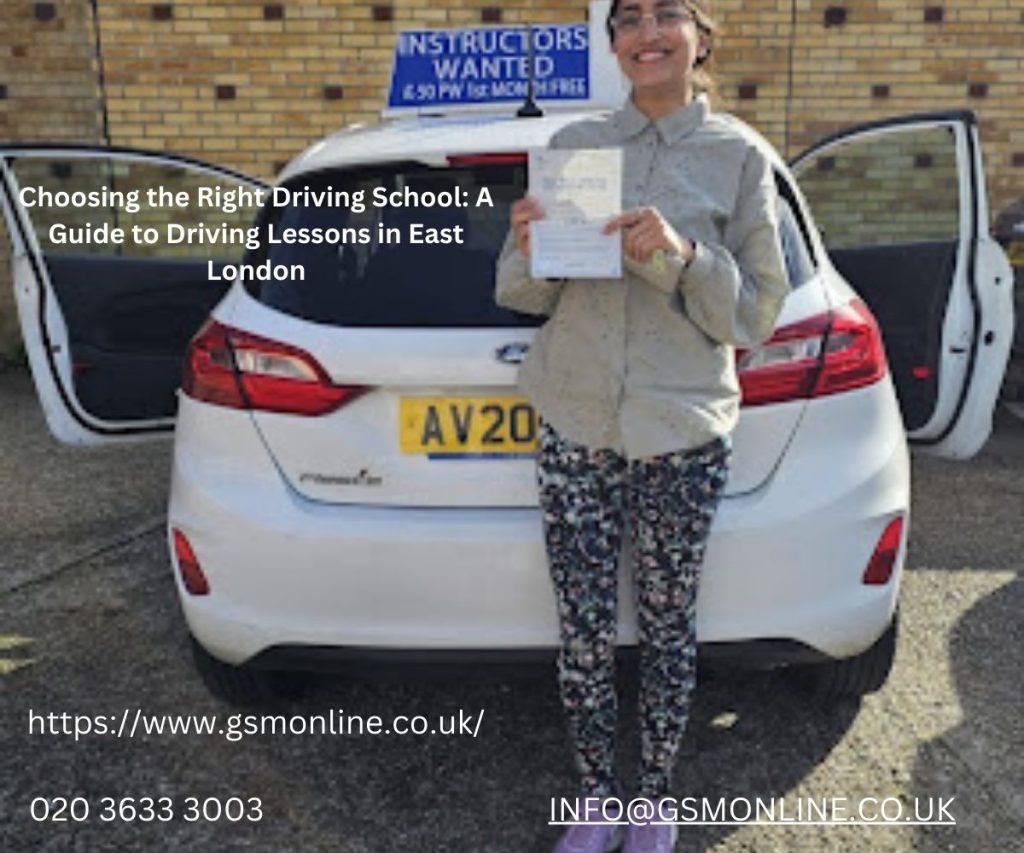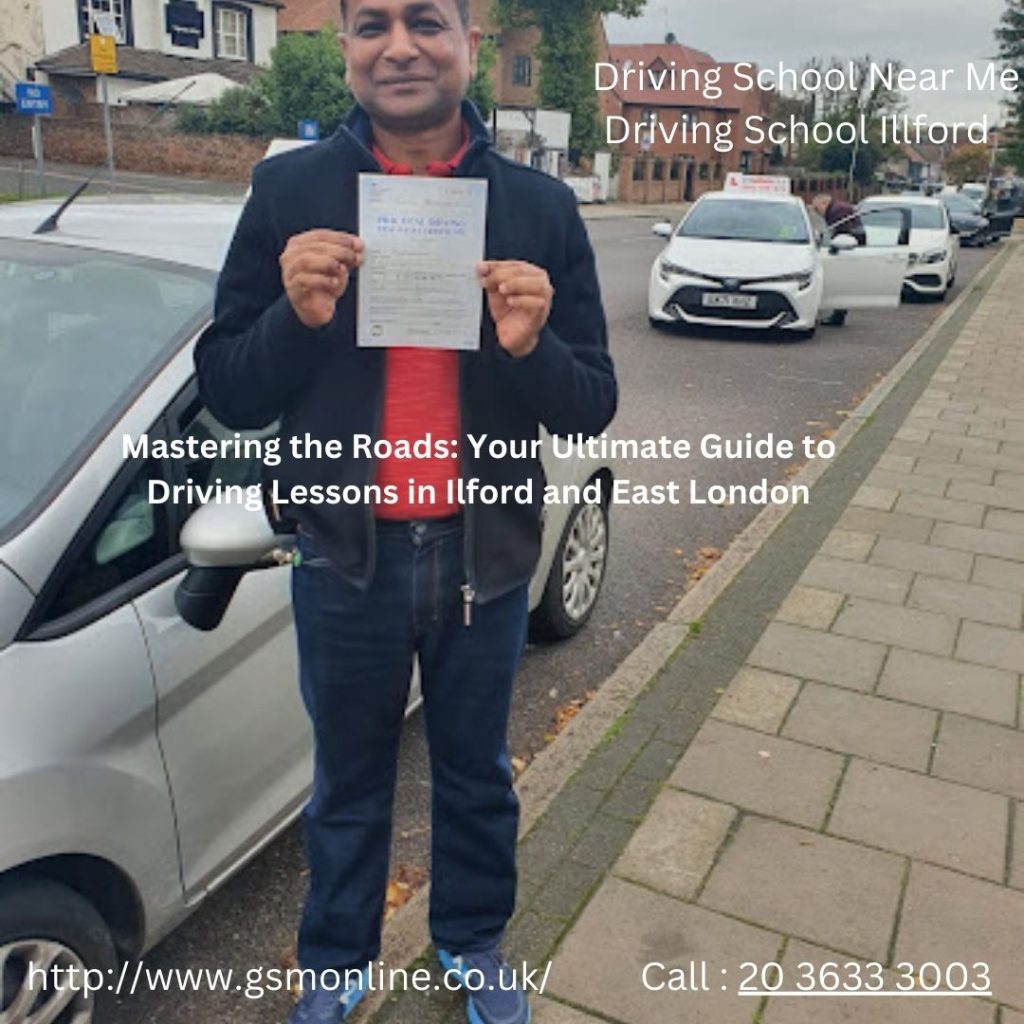Looking to ace your driving test and hit the road with confidence? GSM Driving Academy in Romford, East London, is your ultimate destination for comprehensive and affordable driving lessons. Whether you’re a novice or need a refresher, our experienced instructors are here to guide you every step of the way.
Why Join GSM Driving Academy?
Choosing the right driving school is crucial for your success on the road. At GSM Driving Academy, we offer:
- Experienced Instructors: Our instructors are fully qualified and have years of experience.
- Flexible Lesson Timings: We accommodate your schedule to ensure you get the most out of your lessons.
- Affordable Pricing: We provide competitive rates for quality lessons.
- Customized Learning Plans: Each student receives a personalized learning plan to address their unique needs.
Types of Driving Lessons in Romford We Offer and Teach | Book Your Driving Lessons
- Driving Lessons Teaching Price Romford
- Manual Driving Lessons Romford, East London
- Automatic Driving Lessons Romford
- Pass Plus Driving Courses Romford
- Intensive Driving Lessons Romford
- Female Automatic Driving Lessons Romford
- Female Driving Instructors Romford
- Refresher Driving Lessons Romford
- Car Hire for Driving Test Day
- Cheap Driving Lessons in Romford
- Motorway Driving Lessons London
- Driving Instructors in Romford
Our Lessons
Driving Lessons Romford
Our Driving Lessons in Romford are designed to equip you with the skills and knowledge necessary to pass your driving test. We offer both manual and automatic driving lessons tailored to your preferences.
Driving Schools Romford
As one of the leading Driving Schools in Romford, we pride ourselves on our high pass rates and student satisfaction. Our modern teaching techniques ensure you learn efficiently and effectively.
Driving Instructors Romford
Our team of professional Driving Instructors in Romford is dedicated to providing patient, supportive, and constructive feedback. They ensure that you build confidence and competence behind the wheel.
Cheap Driving Lessons Romford
Looking for quality driving lessons that won’t break the bank? We offer Cheap Driving Lessons in Romford without compromising on the quality of instruction.
Driving Schools Near Me
Searching for reliable Driving Schools Near Me? Look no further than GSM Driving Academy. Conveniently located in Ilford, East London, we serve students from Romford, Dagenham, and surrounding areas.
Female Driving Instructors Romford
For those who prefer a female instructor, we have experienced Female Driving Instructors in Romford who are patient and understanding, ensuring a comfortable learning environment.
Best Driving Instructors in Romford
Our instructors are recognized as some of the Best Driving Instructors in Romford. Their dedication, expertise, and supportive teaching style help students achieve their driving goals.
Intensive Driving Course Romford
Need to get your license quickly? Our Intensive Driving Course in Romford is designed for learners who want to fast-track their driving education. This course covers all essential driving skills in a shorter period, helping you get test-ready in no time.
Driving School in Romford and Dagenham
Serving both Romford and Dagenham, GSM Driving Academy is committed to providing top-notch driving education. Our dual-location service ensures easy access for students from both areas.
Benefits of Choosing GSM Driving Academy
- Comprehensive Training: We cover all aspects of driving, from basic controls to advanced maneuvers.
- Mock Tests: Practice with our mock tests to simulate the real driving test experience.
- High Pass Rates: Our students consistently achieve high pass rates, thanks to our effective teaching methods.
- Modern Vehicles: Learn to drive in our well-maintained, modern vehicles equipped with the latest safety features.
What Our Lerner’s Say
- “Amazing Experience!” – “The instructors are very professional and patient. I passed my test on the first attempt thanks to their guidance.”
- “Highly Recommend!” – “Affordable lessons and great teaching methods. The best driving school in Romford.“
Ready to start your driving journey? Book your first lesson with GSM Driving Academy today! Contact Us now to find out more about our special offers and packages.
Call us today and take the first step towards becoming a confident driver!
Automatic Driving Lessons Romford – FAQs
Q1: Why should I choose automatic driving lessons in Romford with GSM Driving Academy?
A: Automatic lessons are ideal for learners who prefer a simpler learning experience without manual gear changes. GSM Driving Academy offers DVSA-approved instructors, modern automatic vehicles, and flexible lesson plans tailored to your pace.
Q2: How many automatic driving lessons will I need in Romford?
A: While it varies by learner, most students need between 20-30 hours to feel test-ready. Our instructors assess your progress and adapt the training accordingly.
Q3: Do you offer evening or weekend automatic driving lessons in Romford?
A: Yes! GSM Driving Academy provides evening and weekend slots to fit your busy schedule — perfect for working professionals and students.
Driving Lessons East London – FAQs
Q1: What areas in East London does GSM Driving Academy cover for driving lessons?
A: We cover major areas across East London including Stratford, Barking, Ilford, Forest Gate, Leyton, and more. Check our website for a full coverage list.
Q2: Are GSM Driving Academy instructors DVSA-certified?
A: Absolutely. All our instructors are DVSA-approved, experienced, and fully insured, ensuring you receive safe and professional training.
Q3: Can I take driving lessons in both manual and automatic cars?
A: Yes. GSM Driving Academy offers both manual and automatic driving lessons based on your preference and long-term driving goals.
Intensive Driving Course East London – FAQs
Q1: What is an intensive driving course, and how does GSM Driving Academy structure it?
A: Our intensive course is designed for learners looking to pass quickly. We offer 5, 10, and 20-day intensive packages with 4–6 hours of training per day and a fast-tracked driving test booking.
Q2: Who should take an intensive driving course?
A: Ideal for learners with time constraints, previous driving experience, or those needing to get licensed fast for work or relocation. We customize each course to match your ability level.
Q3: Do your intensive courses include a driving test at the end?
A: Yes. GSM Driving Academy handles everything — from course planning to fast-tracking your practical driving test, usually booked at a local East London test center.
Conclusion
GSM Driving Academy in Romford, East London, is your trusted partner in learning to drive. With our comprehensive courses, experienced instructors, and commitment to student success, we ensure you gain the skills and confidence needed to excel on the road. Whether you’re looking for Driving Lessons in Romford, an Intensive Driving Course in Romford, or the Best Driving Instructors in Romford, we have you covered.
Don’t wait any longer. Join the hundreds of satisfied students who have passed their driving tests with us. Contact GSM Driving Academy today and start your journey towards driving excellence!

